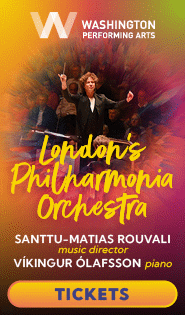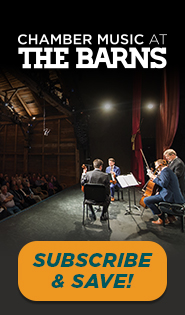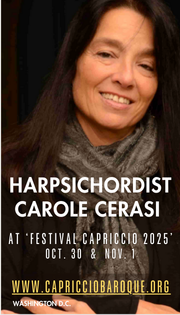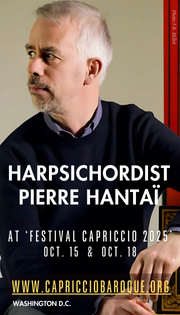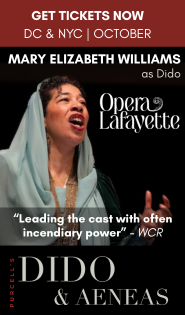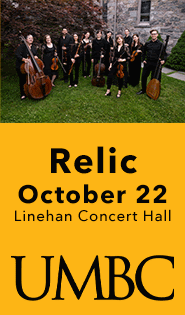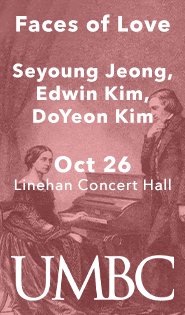Patrick Quigley to open new Opera Lafayette era with a fresh look at “Dido and Aeneas”
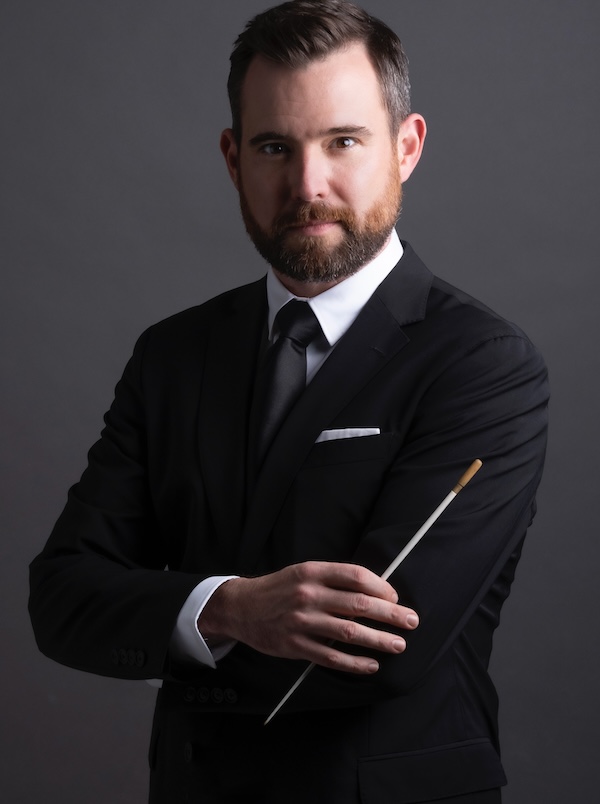
Patrick Quigley begins his tenure as music director of Opera Lafayette this week with Purcell’s Dido and Aeneas. Photo: Dario Acosta
At the end of Opera Lafayette’s 30th season last May, founder Ryan Brown stepped down as that company’s artistic director. The man who took the reins this past July, Patrick Dupre Quigley, opens the next phase of Opera Lafayette’s history with a staged production of Henry Purcell’s Dido and Aeneas Thursday night. At a break in rehearsals, Quigley spoke to Washington Classical Review about the choice of Dido and about his plans for the future.
Quigley started his personal voyage with Dido over twenty years ago, but this will be his first time leading Purcell’s most celebrated work with an all-professional cast and period orchestra. “It’s one of my favorite pieces,” Quigley said. “And it had never been performed by Opera Lafayette in its thirty-year history. As an American opera company, we should be leading the way in presenting early opera in English. There was no more important English opera than Dido until the time of Benjamin Britten.”
Furthermore, Purcell is not as far from the company’s long-held French focus as it might seem. “The score was heavily influenced by the French style,” Quigley explains, “from the dances to the string writing to the vocal characterization.” Aristocratic taste favored French courtly music, and Purcell catered to it. “This organization is very familiar with that French style. I think it’s important that we have that sort of connection.”
Quigley did not want to settle for just another standard historically informed performance of Dido, however. He spoke about the opera’s early performances in an unusual context: the students at Josias Priest’s school for girls in London staged the opera in the late 1680s. Seeking to recreate the treble-voice sound of those performances by young women, he contacted Amanda Eubanks Winkler, a scholar who has written two books on musical performances in early modern English schools.
“These schools often put on their own shows at a high level, sometimes prestigious shows like this one,” Quigley explains. “I have reworked the chorus numbers, which will be sung by only sopranos and altos for the whole show. And the solo roles are all treble voices, too, except for the Sorceress, which was always performed by a man in drag. It’s a haunting sound, I can say after rehearsing the piece this way for a while. There is all this close harmony in the duets and ensembles and choruses, with the Sorceress an octave below everyone else.”
“So it’s a new version of Dido,” Quigley concludes, “based on what we know about it. We can’t say it’s the only authentic version, of course, but it does have some claim to authenticity.” (Professor Eubanks Winkler, director of the music department at Rutgers University, will give a pre-show talk on this subject before the Washington and New York performances.)
Quigley cast soprano Mary Elizabeth Williams as Dido, after working with her last season in Opera Lafayette’s modern premiere of Morgiane, and he describes her interpretation as ravishing. “When we first coached Morgiane together, a year and a half ago,” Quigley recounts, “I asked if she had ever sung Dido. She said she had never even sung anything from a baroque opera. This is not only her Dido debut, it’s her baroque debut.”
“The idea was to put all of her vocal drama into a baroque role,” Quigley continues. “Some of the arias she is used to singing are longer than some of the acts of Dido. She is used to unfolding these complex characters on vast stages, but what if she takes the same approach to such a compact role in a more intimate space?” The results, he adds, have been compelling.
“For everyone in the cast, in fact, this is the first time they are singing the role they are singing,” he explains. “It’s nice to be able to start from a fresh place. Start without assumptions, just with the notes on the page.” Commenting on how he thinks this version will be received, he predicts: “People will find something new and something comforting in this version, along with the thirty-year tradition of period-instrument playing by our orchestra.”
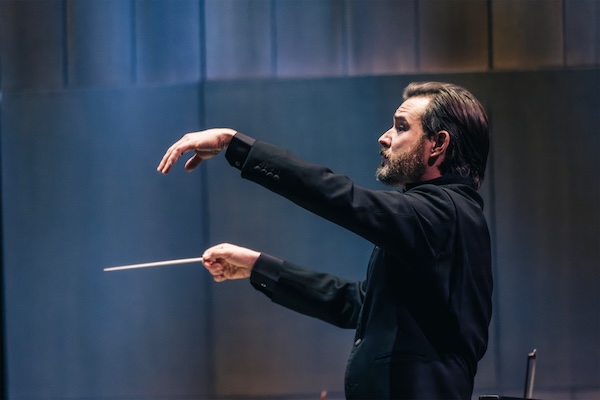
Photo: Curtis Perry/National Arts Centre
Before Quigley came to Washington, he made his name in Florida with the choir he founded and led for almost a century, Seraphic Fire. He will step down from that ensemble’s leadership at the end of this season, to be succeeded by his long-time associate conductor there, James Bass. As Quigley told me almost a decade ago, Seraphic Fire’s specialty was “music pre-Beethoven and music composed within the last ten years.”
How does Quigley plan to continue Opera Lafayette’s French-leaning traditions, and does he foresee widening the scope a bit? “I can’t say much specifically,” he teases, “but we will have some very exciting French premieres, works directly within the wheelhouse of this organization, coming up in future seasons. That is our bread and butter.”
“I was working at the Bibliothèque Nationale in Paris this summer,” he says. “I saw some incredible works by big, bold names that have never been seen out of manuscript. That is an indivisible part of what we do as a company.” At the same time, he wants Opera Lafayette to have the chance to perform other music, like a Haydn symphony and music by 18th-century composers Marianna Martines and Maria Antonia Walpurgis, all planned for this season. “These pieces are clearly ‘what we do’ but from a different national tradition,” he explains.
“I would also love to see some more Monteverdi in our repertoire, particularly some of the big pieces,” he adds. “There are some really lovely comic operas from the French and Italian 17th century. I don’t think we’ve ever done a Scarlatti opera, for example.” Furthermore, Quigley is interested in going beyond operatic conventions. “In its early history, opera was not performed on a proscenium stage,” he explains. “The origins of court opera are in banquets, in parties.”
Such thoughts led to the new season’s second Opera Lafayette program, to be led by guest conductor Nicholas McGegan in February. This unusual mix of “tender ballads, amorous duets, cheeky verses, and bawdy drinking songs plus food, cocktails, and wine” will be presented at the St. Francis Hall in Northeast Washington. (Sarah Thompson, who won the 2023 Michelin Guide’s Washington, DC Sommelier of the Year, will select the wines for the D.C. performance.) Quigley will help with the production side and wants to be in the audience and experience it with the people who are hearing it for the first time.
“This concert will be wonderful and hilarious and touching,” Quigley quips. “Like a Rat-Pack evening, but with 17th-century music. I am convinced there is an overlap among the culturally curious in Washington: people interested in music, literature, fine dining, whatever. The Florentine Camerata was a group that brought all sorts of ideas and craft together,” he says, when they created the world’s first operas, which were performed during Carnival and at the wedding of King Henry IV of France and Maria de Medici in Florence.
Quigley eventually worked his way around to an unusual approach in rehearsing with Seraphic Fire, which he jokingly referred to as the “American Airlines chorus.” His “very favorite choral mercenaries” flew to Florida and rehearsed intensely for a few days before each concert. Over the years, he built strong relationships with the singers who performed with Seraphic Fire, and he has invited some of them to join his first season with Opera Lafayette: tenor James Reese, soprano Elijah McCormack, and soprano Chelsea Helm.
“I was lucky to work with these singers first back when they were younger,” Quigley explains. “What I would really like to do as far as casting with Opera Lafayette is to showcase the American school of singer training in early music in the U.S. I feel it is our responsibility to show what the American academy has produced, but ultimately there are no limits on who might be cast at Opera Lafayette.” That includes non-historical music specialists. “Style and technique used to be thought of as synonymous,” he says. “Now we see technique as distinct from style.”
This season Opera Lafayette made the decision not to perform any more at the Kennedy Center Terrace Theater, where it had mostly been based in recent years. Quigley steered clear of politics in talking about the decision, which was not his to make alone. “We are not a resident ensemble of any venue, and we never have been,” he clarifies, citing Opera Lafayette’s long history. “We have performed all over New York City and all over Washington, D.C. This is going to be a year of experimentation for Opera Lafayette in many ways, and we’re going to see what works for us.”
Patrick Dupre Quigley conducts Opera Lafayette’s new production of Dido and Aeneas 7:30 p.m. October 16 and 18, at Sixth & I Historic Synagogue, with Patrick Quigley at the helm. operalafayette.org

